The Wildlife Around Tuffies Dog Beds Workshop.
As a rural business based in Aberdeenshire in Scotland, where we make the best possible waterproof dog beds, we have a great opportunity to follow the wildlife that is so close to us. We are NOT placed in an industrial estate. We are surrounded by mixed farmland with cattle, sheep and arable. There are many pockets of untouched areas with bushes, ditches, trees etc, where roe deer, rabbits, hares, foxes and a massive number of wild birds live.
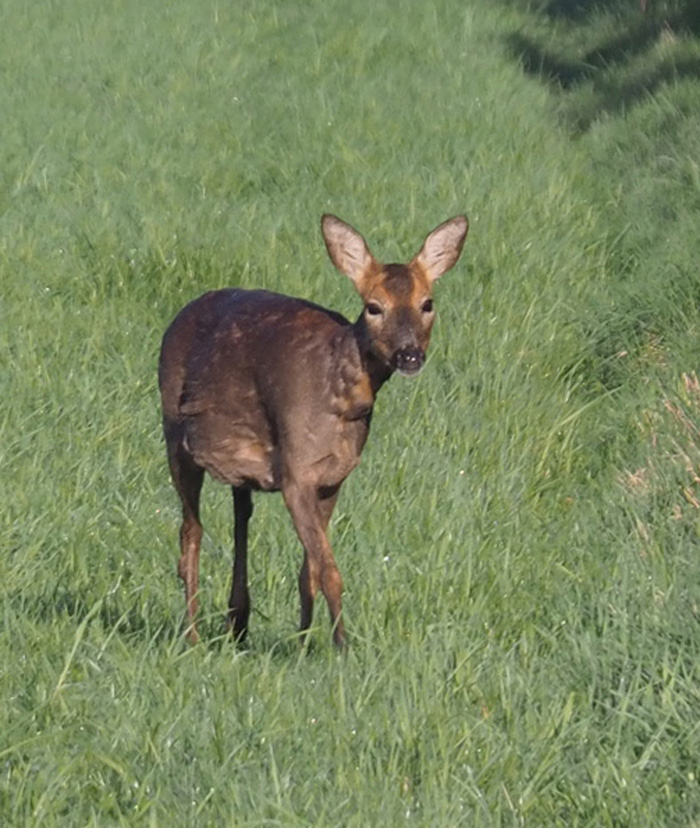
Highly pregnant roe doe. Molting the winter coat.
A few years ago I went to a quiet place to train my young dog, Gaia. She must have been about a year old. She was at the stage practising “memory retrieves”, so I found an area in the woods with long grass and threw a dummy for her. She marked it and went straight for it when I sent her. When she got there, she didn’t pick the dummy up, but just stared at it. I couldn’t understand what was going on, so in the end I had to go and find out what was wrong with her. I had accidentally thrown the dummy where a little fawn had been left by its mum and Gaia didn’t know what to do next.
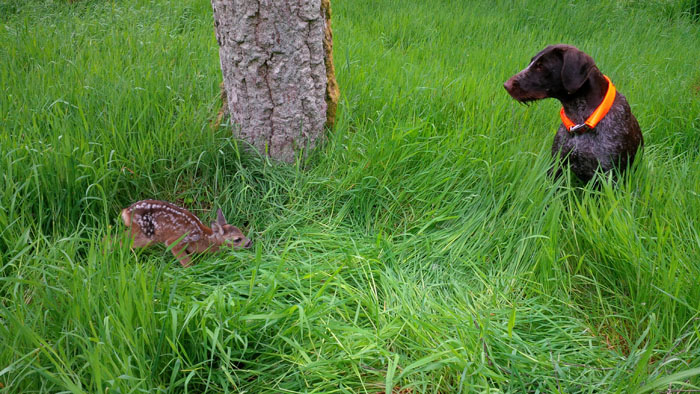
Gaia accidentally came across this newborn fawn.
The Birds
All winter we feed the small birds in the garden outside our workshop where we have Gold Finches, Chaffinches, Green Finches, tits and sparrows. We also have woodpeckers and a pair of long-tailed tits, which is not so common in the garden.
We have wrens nesting and tree creepers too. Recently a wren made most of its nest on my car’s chassis above the rear wheel. I noticed that it was going in there, sitting on the wheel with a face full of moss, then disappearing and then coming out without the moss. I checked under the car and sure enough there was a nest.
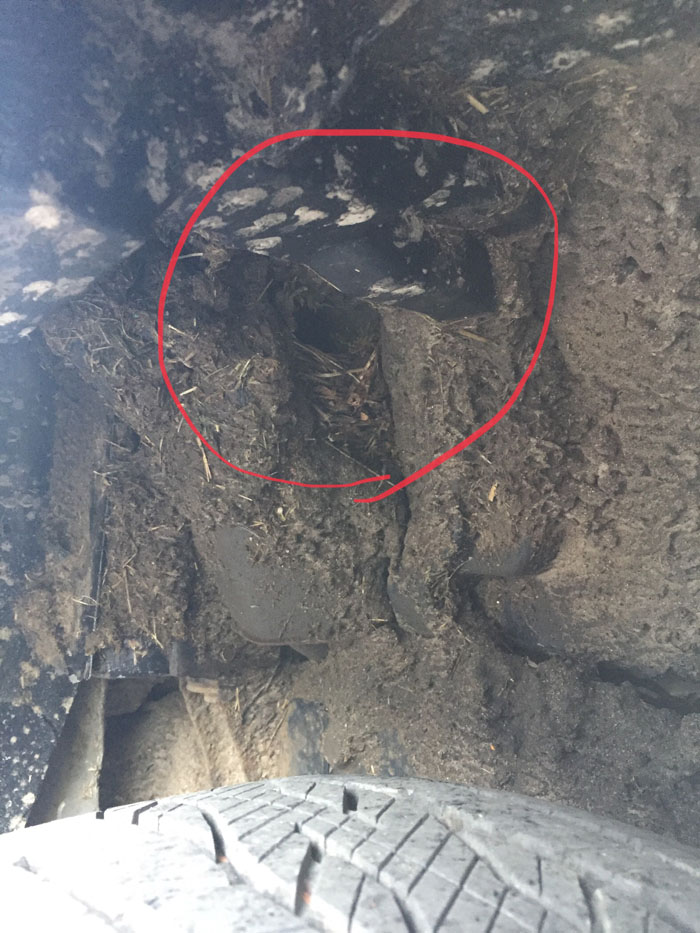
Wren nest above my wheel. You can see the sticks and the moss above the entry hole.
So I was faced with a full month of not touching my car, which is ok in lock-down, but beyond it is not very convenient. Also, I do use the car for taking the dogs to an exercise place as this car has a fantastic bespoke dog bed in the back. However, the problem was solved by the prospective wren wife, who obviously did not approve of the mobile nest. Apparently, the male wren starts off building 3-5 nests and shows the female wren all the nests where after she chooses one of them. They have now settled for an absolute palace in the lean-to by the office building where he created an amazing penthouse on top of an old swallow’s nest.
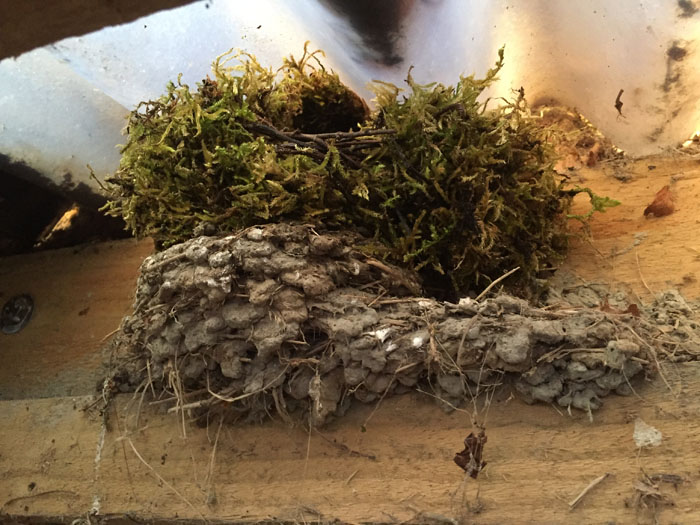
Wren nest built on top of an old swallow’s nest.
We also have a pair of blue tits who are making a nest in the metal sheathing that covers the high voltage cable going up the electricity mast. They are transporting the most amazing building materials to the nest and stuff it in.
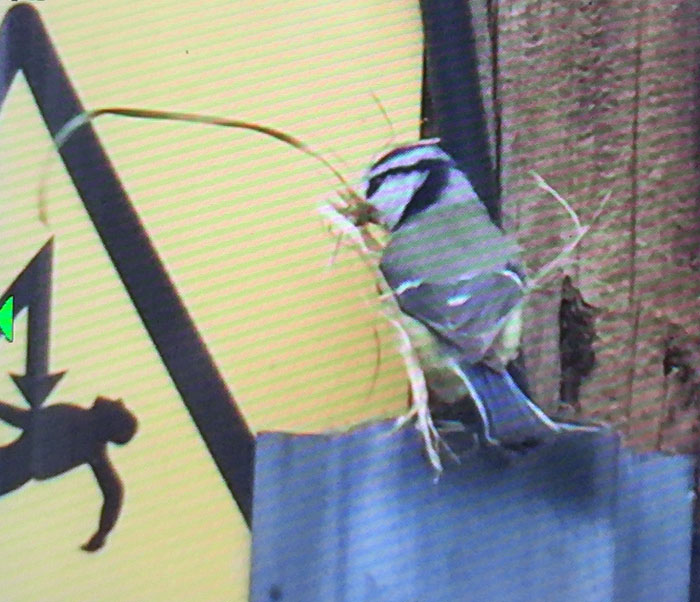
Blue tit with big piece of grass for the nest.
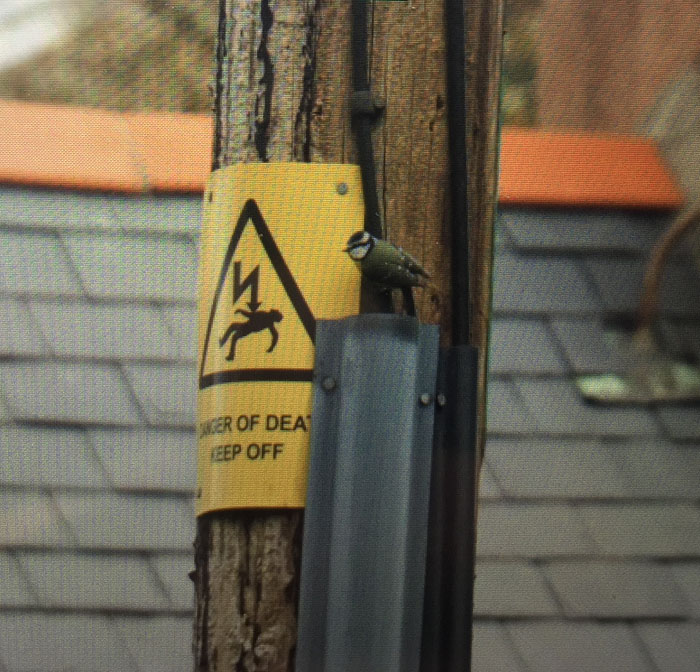
Charming sign of DEATH beside the tit’s nest.
Further along the road we have a parliament of rooks. They are not everyone’s cup of tea as they make a lot of noise. We quite like them, but we are not trying to sleep here and our sewing machines are also a bit noisy. The rooks are very social creatures and, like all crows, intelligent.
But the carrion crow is a different matter.
On a neighbouring farm a pair of oystercatchers are trying to nest. All waders have a terribly difficult time surviving due to habitat loss and lack of control of their predators. Unfortunately, carrion crows like nothing better than an oystercatcher egg or chick as a casual snack. It is desperate to see the carrion crows prowling around the oystercatchers and then one day see the pair with no chicks. A lot of farmers do shoot the crows, but without a determined attempt to get rid of them, it is very difficult to control them and there are a lot of them. I have despatched of 8 just around our space. For every carrion you despatch of, you save some bird life.
This afternoon I am due to start eradicating the crows by the farm with the oystercatcher. It would be fantastic to get the young on the wing this year. As I write, I can hear the characteristic call from one of the adult oystercatchers as it flies by.
….and the bees
Our garden around the dog bed factory is full of wild vegetation with just enough lawn through it to make it all look neat and tidy. The borders are barely trimmed and there is a fantastic wild life of birds and insects. We are very lucky to have all manner of wild bumble bees here. If you go outside at the moment there are bees buzzing in the air no matter where you go. With the flowering bushes and trees and wild annuals or perennials there is a constant source of pollen and nectar for the bees and they make the most of it. We have made bee homes according to the guidance of experts where you dig in an upside down pot with some dry grass in for nesting and you make a tube coming out from the pot to the lawn for the bees to crawl through. The idea is that they have a safe place for their nests. I don’t see any bees going in and out of the tubes yet, but of course it is a bit too early and you would have to sit by the tube and wait! But it was probably not necessary to make the bee houses as we have about a hectare with woodland and the bees are clearly finding plenty of safe nesting places in there. When you stand in the woods in early spring, you can see bumble bees searching along the ground for nesting places. Apparently they like an old mouse nest and we have plenty of those.
Here is the view from my office window from last year when the male blackbird was busy feeding the fletchling.
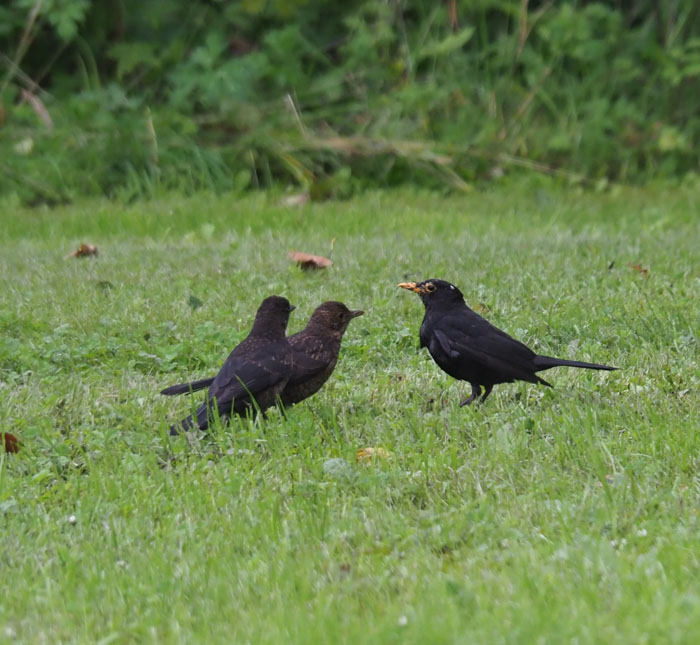
Male blackbird with two grown broods.
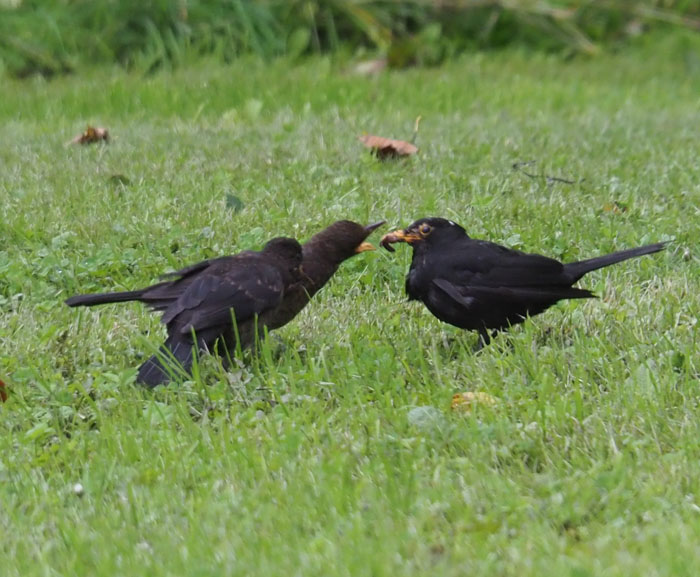
Every hungry mouthes.
-
08/04/2020 12:23
Which Dog Beds are the Most Comfortable?
The best people to answer this question are the many customers who take the time to write in to us, usually with accompanying pictures, to say how grateful they are for their Tuffies <a href="https://www.tuffies.co.uk/">.. -
09/07/2020 12:00
Grace and Tuffies from the Highlands of Scotland
Grace Campbell runs a small, dog expert doggy care at the top of the north of Scotland. It is called "Hirsel", meaning a small cosy place, which is exactly what it is. And of course: it is all fitted out with cosy <a hre..



